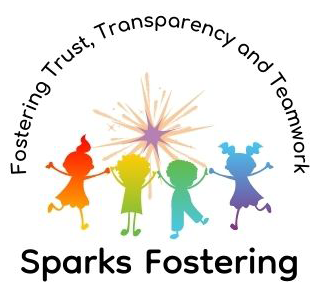What does fostering training involve?
Being a foster carer is a partly caring, partly professional role. The children who are looked after often have some level of additional needs, which may be emotional, mental or physical. Most commonly, the children need therapeutic support to overcome the emotional harm caused by abuse in earlier life. As part of the professional role of fostering, foster carers receive extensive and regular training throughout their fostering experience; this helps carers to meet the needs of the children in their care.
Training topics
The core training programme of all fostering providers should cover safeguarding, behaviour support, missing child, online and mobile phone slavery, trafficking (including child exploitation), radicalisation, record keeping, administration of medication, health, and education. Sparks Fostering has expanded the core training programme to include over 40 topics.
In addition to the core training programme, child-specific training has to be provided: For example, carers who look after unaccompanied asylum seeking children must attend specialist training to help them understand the specific needs of these children.
Training methods
Historically training was provided face-to-face in the fostering sector and some services continue to expect carers to attend face-to-face training. The benefits of face-to-face training are that it helps team members to build relationships, it stops carers from being distracted (like they may be if completing training when they’re home), and it can help the service to ensure that attendees understood and asked appropriate questions.
Sparks Fostering, along with many other foster providers, have moved towards online and self-directed learning. At Sparks Fostering the core training programme involves, reading (or listening to the audio of) core policies, answering questions to confirm learning, discussing training in supervision and having online workshops where all team members reflect on learning. Sparks Fostering also provides access to some online courses and live training sessions. The benefits of online and self-directed learning are that carers can complete the training when it’s a suitable time for them, the learning is more efficient, carers learn policies and guidance specific to Sparks Fostering, and learning is consolidated by revisiting it in different ways (i.e. in writing, in one-to-one discussions, and in group discussion). At Sparks Fostering we arrange regular day trips to encourage relationship-building, rather than expect relationships to develop during training.






